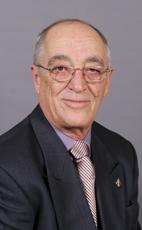Mr. Speaker, I thank my colleague from Drummond for sharing her time with me.
I cannot say that I am pleased to address the report of the Standing Committee on Finance on prebudget consultation.
To give a bit of background, I travelled across Canada in 1997 to listen to people and to their recommendations on what ought to be in the 1997 budget. Bhat happened? Not a thing. People were made to travel, much energy and money was expended to listen to them, but none of their recommendations made it into the last budget.
In the fall of 1998, in the latest consultations, once again people put themselves out to appear and to tell this Minister of Finance what should be in the budget. Still more surprising, what these people had to say did not even make it into the report.
The report tabled before the holidays is one that was created, thought up and written, by the boss, the real boss of the Standing Committee on Finance, the Minister of Finance. If read carefully, this report is there to pat the government on the back, tell the minister what a fine, intelligent fellow he is, what a really great job he is doing.
If the finance minister is going to show off, he should do it properly. His forecast was a surplus of some $2 or $3 billion. According to the Bloc Quebecois figures, the figure will instead be $10 billion or more, if not $15 billion.
What is the source of these surpluses the Minister of Finance boasts about? Where do they come from these billions of dollars saved by the Minister of Finance? It is easy, no academic studies are required to figure out where these billions of dollars come from. They come first from the unwarranted cuts in transfers to the provinces, health care services, social services and education. My colleague from Drummond could talk for hours about the negative effects of these cuts in health in all the provinces of Canada, primarily in Quebec.
Where does the money come from? Quite simply from the fact that over the years the government opposite has been raising income tax on the middle class and the poor by not indexing tax tables. Where do these surpluses come from? They come from this government's shameless siphoning-off of funds from the employment insurance fund, to which workers and employers contribute to create employment insurance intended to help workers in trouble. But they siphon the money off.
Our Minister of Finance is lucky, for the low interest rates of recent years have provided him with lower debt service costs, allowing him to save on income tax. The world economic situation has also provided the government with more revenues than it expected.
No, this Minister of Finance and this government have not kept their promises. They told us “We will put a stop to this shameless wastage”. But they have not yet done so. They also said “We will cut useless and outdated programs”, but they are creating other useless and outdated programs, such as the millennium scholarships. They are going to spend billions of dollars rather than give the money to the provinces so they can manage it efficiently. They are continuing duplication in areas of provincial jurisdiction.
The report refers to a productivity covenant. Rubbish! This government should start by being effective and productive and by doing a good job of managing taxpayers' money.
This year I did not travel across Canada listening to what people had to say on the budget. I sat down in my riding of Rivière-des-Mille-Îles—I am sure you will not mind, Mr. Speaker, if I say hello to my constituents—and asked members of the general public, bank managers and presidents of chambers of commerce what the government should do with the surpluses. They came up with three or four ideas.
First of all, there was unanimous agreement that the government should return the cuts in provincial transfer payments so that the provinces could do something about the problems caused by the cuts in the health, education and social services sectors.
The second suggestion was to give the middle class and the most disadvantaged a tax break. This could be done by indexing the tax tables.
The third suggestion was to improve the employment situation and reduce the premiums paid by employees and employers.
I suggest that the Minister of Finance pay a little visit to the Gaspé and New Brunswick, that he pay a little visit to seasonal fishers with EI problems. He should get out and see some real people.
Finally, everyone agreed that the government should clean up its act, as it has been promising to do since 1993. Everyone remembers the famous red book of 1993. This government should not establish programs like the millennium scholarships. Instead it should introduce the programs needed to create jobs and get Canadians and Quebeckers working.
That is what an intelligent government should be doing, not boasting of its achievements at the expense of the provinces and the poor workers of Quebec and of Canada.

